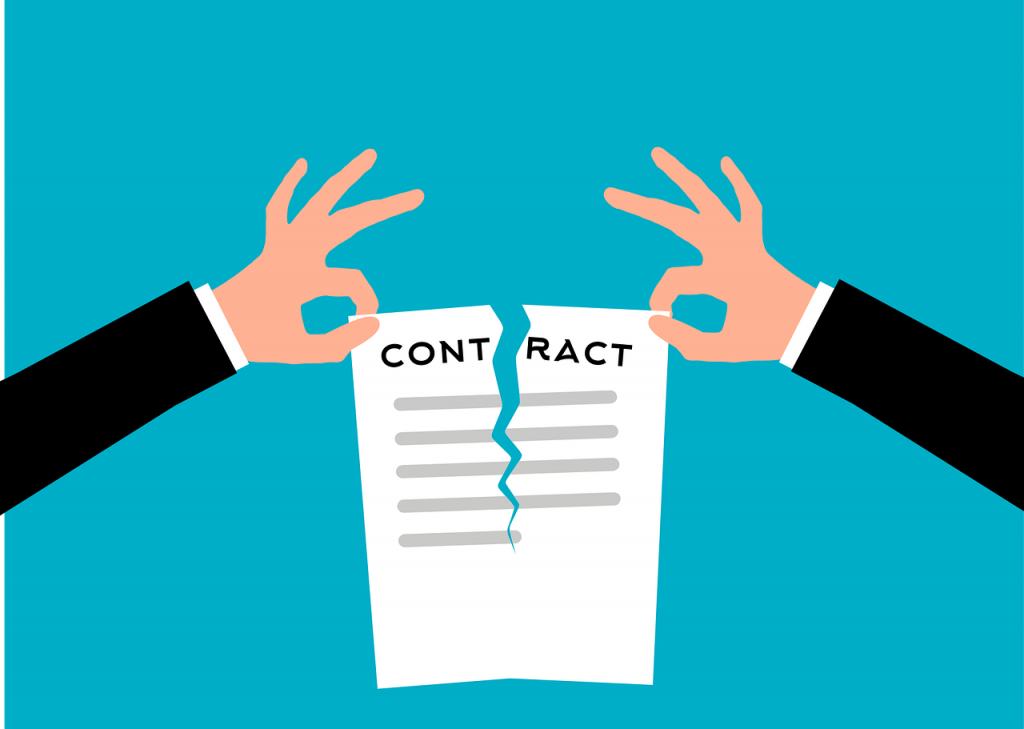Are you in need of legal guidance regarding healthcare contract law? Look no further. This article is your go-to resource for addressing common legal concerns related to healthcare contracts. From understanding the intricacies of contract negotiations to navigating the legalities of contract disputes, we’ve got you covered. Our goal is to provide you with reassurance and guidance, ensuring that you have the necessary knowledge to make informed decisions. So, whether you’re a healthcare professional or a healthcare organization, don’t hesitate to take the next step and seek assistance promptly. Contact our experienced attorney listed on our website for more information and personalized support. Let us help you navigate the complexities of healthcare contract law.

Understanding Healthcare Contract Law
Welcome to the comprehensive guide on understanding healthcare contract law! In this article, we will dive deep into the definition of healthcare contract law, discuss why it is important, explore common issues that can arise, and examine key elements of healthcare contracts.
Definition of Healthcare Contract Law
Healthcare contract law refers to the legal principles and regulations that govern contractual relationships within the healthcare industry. It encompasses the rights and obligations of parties involved in healthcare contracts, ensuring that all parties are protected and that the agreements are enforceable by law.
Why Healthcare Contract Law is Important
Healthcare contract law plays a crucial role in maintaining the integrity and efficiency of the healthcare system. It provides a framework for healthcare providers, patients, and other stakeholders to enter into agreements that define their rights, responsibilities, and expectations. By understanding and adhering to healthcare contract law, all parties can ensure fair treatment, compliance with regulations, and the delivery of quality healthcare services.
Common Issues in Healthcare Contracts
While healthcare contracts aim to establish mutually beneficial relationships, issues may still arise. Some of the common challenges faced in healthcare contracts include:
-
Payment Disputes: Disagreements over reimbursement rates or payment terms can strain the contractual relationship between healthcare providers and payers.
-
Non-Compliance: Failure to comply with healthcare regulations, such as billing practices, documentation requirements, or privacy standards, can lead to legal consequences.
-
Breach of Contract: When one party fails to fulfill their obligations as outlined in the contract, it constitutes a breach of contract, which may result in legal actions.
-
Misinterpretation of Terms: Healthcare contracts can be complex, leading to misunderstandings or disputes over the interpretation of certain terms or clauses.
To navigate these issues effectively, it is essential to understand the key elements of healthcare contracts.
Key Elements of Healthcare Contracts
Healthcare contracts are legal agreements that require certain essential elements to be valid and enforceable. Let’s take a closer look at each of these elements:
Offer and Acceptance
A healthcare contract must involve a clear offer by one party and an explicit acceptance by the other party. This means that both parties must agree upon the same terms and conditions for the contract to be valid.
Consideration
Consideration refers to something of value exchanged between parties. In healthcare contracts, consideration can be in the form of payment for services, confidentiality commitments, or any other agreed-upon benefit.
Legal Capacity and Intention
For a healthcare contract to be legally binding, all parties involved must have the legal capacity to enter into an agreement. They must also demonstrate the intention to be bound by the terms of the contract.
Mutual Assent
Mutual assent, also known as a meeting of minds, implies that all parties involved have a clear understanding and agreement on the essential terms of the contract.
Lawful Purpose
A healthcare contract must have a lawful purpose, meaning it should not involve any illegal activities or intentions. It should align with existing healthcare laws and regulations.
Now that we have a solid understanding of the key elements of healthcare contracts, let’s explore the different types of contracts commonly found in the healthcare industry.
Types of Healthcare Contracts
Healthcare contracts come in various forms, serving different purposes and involving distinct parties. Some of the most common types of healthcare contracts include:
Employment Contracts
Employment contracts outline the terms and conditions of employment between healthcare providers, such as doctors, nurses, or other medical professionals, and healthcare organizations or institutions.
Provider-Patient Contracts
Provider-patient contracts establish the relationship between healthcare providers and patients, defining the rights and responsibilities of both parties, treatment plans, confidentiality agreements, and payment terms.
Medical Equipment Contracts
Medical equipment contracts govern the rental, leasing, or purchase of medical equipment between healthcare facilities and equipment suppliers, ensuring safety, maintenance, and warranty obligations.
Pharmaceutical Contracts
Pharmaceutical contracts involve agreements between healthcare providers and pharmaceutical companies for the supply and distribution of medications, addressing pricing, delivery schedules, and quality control.
Each type of healthcare contract requires careful consideration of legal requirements and compliance with healthcare regulations.
Legal Requirements in Healthcare Contracts
To ensure the legality and ethicality of healthcare contracts, several important legal requirements must be upheld. These requirements typically include:
Compliance with Healthcare Regulations
Healthcare contracts must comply with applicable laws and regulations, such as those related to billing practices, privacy rights, fraud and abuse prevention, and anti-kickback statutes.
Informed Consent
Informed consent is crucial in healthcare contracts, as it requires healthcare providers to obtain their patients’ consent after providing them with comprehensive information about their medical conditions, proposed treatments, potential risks, and alternatives.
Confidentiality and Privacy
Healthcare contracts should address the confidentiality and privacy of patient information, ensuring compliance with regulations, such as the Health Insurance Portability and Accountability Act (HIPAA).
Financial Arrangements
Financial arrangements, including billing procedures, payment terms, and reimbursement mechanisms, must comply with healthcare regulations and clearly outline the obligations of both parties.
By adhering to these legal requirements, healthcare contracts can protect the interests of all parties involved and mitigate potential disputes.
Negotiating and Drafting Healthcare Contracts
Negotiating and drafting healthcare contracts requires careful attention to detail and a comprehensive understanding of the parties’ needs and objectives. Here are some essential factors to consider during this process:
Understanding the Parties’ Needs and Objectives
Before initiating contract negotiations, it is essential to understand the needs and objectives of all parties involved. This helps in shaping the terms and requirements of the contract to ensure a mutually satisfactory agreement.
Identifying and Addressing Potential Risks
Thoroughly identifying potential risks and pitfalls in the contract is crucial. This includes assessing legal and regulatory compliance, pricing and reimbursement issues, liability concerns, and other factors that may impact the parties’ obligations and rights.
Seeking Legal Advice
Engaging a healthcare contract attorney throughout the negotiation and drafting process is highly recommended. An experienced attorney can provide valuable advice, ensure compliance, and help protect your interests.
Tips for Effective Drafting
When drafting a healthcare contract, it is important to be clear, concise, and comprehensive. Use plain language and avoid ambiguous terms or complicated legal jargon. Consider including contingencies, termination clauses, and dispute resolution mechanisms to address potential future issues.
By following these negotiation and drafting practices, you can create healthcare contracts that are solid, fair, and reflective of the parties’ intentions.
Enforcing Healthcare Contracts
Despite careful drafting and negotiations, there may be instances where a healthcare contract is breached or disputes arise. In such cases, understanding the enforcement mechanisms is crucial. Here are some key aspects of enforcing healthcare contracts:
Breach of Contract
When one party fails to fulfill their contractual obligations, it constitutes a breach of contract. This can occur due to non-payment, failure to deliver services, or other violations outlined in the agreement.
Remedies for Breach
In the event of a breach, there are various remedies available, such as seeking monetary damages, specific performance (enforcing the party to fulfill their obligations), or termination of the contract.
Legal Actions and Litigation
If the parties cannot resolve their dispute through negotiation, legal actions may be pursued, including filing a lawsuit and going through the litigation process. This can be time-consuming and costly, often best avoided through alternative dispute resolution methods.
Alternative Dispute Resolution
Alternative dispute resolution (ADR) methods, such as mediation or arbitration, offer less formal and more cost-effective ways to resolve contractual disputes. ADR can help parties find mutually agreeable solutions outside of the court system.
By understanding the enforcement options available, parties can protect their rights and seek appropriate remedies in case of a breached contract.

Termination and Renewal of Healthcare Contracts
Healthcare contracts often have termination and renewal provisions that dictate the end or continuation of the agreement. Here are some key considerations in terminating or renewing a healthcare contract:
Termination Clauses
Termination clauses outline the conditions and procedures for ending the contract. Careful attention should be given to the grounds for termination, notice requirements, and any associated penalties or obligations.
Notice and Timing Requirements
Parties should adhere to any notice and timing requirements stipulated in the contract. Failure to provide sufficient notice or meet established timelines can result in contract disputes or legal consequences.
Renewal Options
Contracts may include provisions for renewal options, allowing parties to extend the agreement beyond its initial term. Renewal terms should be clearly defined in the contract to avoid confusion or disagreement.
Contract Disputes at Termination
Disputes can arise regarding contract obligations and rights during the termination process. Parties should seek legal advice to navigate potential conflicts and ensure compliance with contractual obligations.
Navigating the termination and renewal process requires careful adherence to the terms of the contract and a clear understanding of the rights and obligations of all parties involved.
Impact of Healthcare Laws and Regulations on Contracts
Healthcare contracts are significantly influenced by various laws and regulations governing the healthcare industry. Here are some key healthcare laws and regulations that impact contracts:
Anti-Kickback Statute
The Anti-Kickback Statute prohibits the exchange of anything of value to induce or reward the referral or generation of federal healthcare program business. Healthcare contracts must be structured to comply with this law to avoid legal consequences.
Stark Law
Stark Law, also known as the Physician Self-Referral Law, prohibits physicians from referring patients to entities where they have a financial relationship. Compliance with Stark Law is crucial in structuring healthcare contracts involving referrals.
HIPAA and Data Security
The Health Insurance Portability and Accountability Act (HIPAA) mandates the protection and privacy of patient health information. Healthcare contracts must incorporate provisions that ensure HIPAA compliance and data security safeguards.
Fraud and Abuse Regulations
Healthcare contracts must adhere to various fraud and abuse regulations, such as the False Claims Act and the Federal Anti-Kickback Statute, to prevent fraudulent activities, abuse, and unethical practices in the healthcare industry.
Understanding the impact of these laws and regulations is vital when drafting, negotiating, and enforcing healthcare contracts.

Recent Developments and Trends in Healthcare Contract Law
Healthcare contract law is a dynamic field, evolving to adapt to changes in healthcare practices and technologies. Here are some recent developments and trends in healthcare contract law:
Telemedicine and Virtual Healthcare Contracts
With the rise of telemedicine and virtual healthcare, contracts are now being drafted to address the unique considerations of remote consultations, data transmission, and patient-doctor interactions in a virtual environment.
Value-Based Care Contracts
Value-based care contracts focus on patient outcomes and performance metrics rather than traditional fee-for-service models. These contracts aim to improve the quality and efficiency of healthcare delivery.
Digital Health Contracts
The development of digital health technologies, such as health apps, wearables, and remote monitoring devices, has given rise to contracts that address data ownership, privacy, and security concerns.
Non-Compete Clauses in Healthcare
Non-compete clauses in healthcare contracts restrict healthcare professionals from practicing within a certain geographic area or for a specific timeframe after leaving an organization. These clauses have become subject to increased scrutiny and regulation.
Staying updated with the latest developments and trends in healthcare contract law is crucial for healthcare professionals and organizations in managing their contractual relationships effectively.
Seeking Legal Assistance for Healthcare Contract Matters
Navigating the complexities of healthcare contract law can be challenging. It is essential to seek legal assistance from a healthcare contract attorney when dealing with healthcare contract matters. Here’s when and how an attorney can help:
When to Consult a Healthcare Contract Attorney
It is advisable to consult a healthcare contract attorney when entering into new contracts, engaging in contract negotiations, or facing contract-related disputes and breaches. An attorney can provide you with guidance and protect your legal interests.
How an Attorney Can Help
A knowledgeable healthcare contract attorney can review, draft, and negotiate contracts on your behalf, ensuring compliance with applicable laws and regulations. They can help you understand your rights and obligations, as well as provide guidance in dispute resolution.
Selecting the Right Attorney
When choosing a healthcare contract attorney, consider their experience, expertise, and reputation in the field. Look for attorneys who specialize in healthcare law and have a track record of success in handling similar contractual matters.
By seeking the assistance of a qualified attorney, you can navigate healthcare contract law with confidence and ensure that your contractual relationships are legally sound and compliant.
In conclusion, healthcare contract law is a multifaceted area that requires a comprehensive understanding of legal principles, healthcare regulations, and the unique dynamics of the industry. By understanding the definition, key elements, types, legal requirements, negotiation and drafting processes, enforcement mechanisms, termination and renewal considerations, impact of laws and regulations, recent developments, and seeking legal assistance, you can navigate healthcare contracts effectively and protect your rights and interests. Remember, healthcare contract law exists to establish fair and ethical relationships within the healthcare industry, ensuring the provision of quality care to patients and the smooth functioning of healthcare organizations.
























